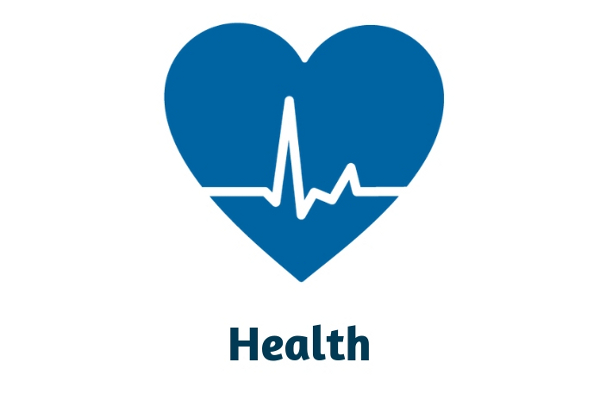Codependency is characterized by an unhealthy dependence on other people, and in many ways is every much as debilitating as an addiction to alcohol and drugs. People can become codependent in any relationship in their life, whether it is familial, romantic, friendly- it can even occur in work and business relationships.

Who Struggles with Codependency?
Despite codependency manifesting in symptoms similar to nurturing, both men and women can suffer with codependency issues. In fact, codependency is a behavior that can arise in any age group, and sex, and any race. Often, codependency is a behavior which takes hold of an individual as a means of providing feelings of safety, validation, emotional fulfilment and love. However, these feelings are typically misplaced, and codependent relationships can be extremely unhealthy for one or both participants.
Signs of Codependency
While there are many assumptions that codependents are simply people pleasers or caretakers, the symptoms of codependency are far reaching and can look very different from person to person. Common symptoms include:
• Poor Boundaries: Boundaries are an incredibly important aspect of healthy relationships which allow people to create a safe emotional space for themselves. Boundaries can be a guideline to telling a loved on what you need and how to meet your needs, and if a person feels unable to set boundaries, or that their boundaries have been crossed, that emotional integrity in a relationship dissolves.
• Low Self-Esteem: Individuals with Low Self Esteem are much more prone to seeking happiness and validation from another person. Unfortunately, when a codependent has poor self-esteem, they begin to hold others emotionally responsible for their happiness, putting themselves in a position to be let down. This can cause a cycle of shame that plays into the toxicity of codependent relationships.
• People-Pleasing Behaviors: Codependent people often have a need to be liked and accepted, so much so that it becomes similar to a survival technique to them. People pleasing is a way in which codependents can “win the affections” of other people. This is dangerous because often codependents will over please to the point that they put themselves in bad situations, mentally and physically.
• Control: People are often surprised to find that controlling is a sign of codependency, but it is actually very common. For people who are codependent, there can be an intense fear of losing people or of not getting the validation they seek from others, which causes them to try to control how the people they are codependent on act.
• Poor Communication: This symptom can manifest in various ways. Often, codependent people will have difficulty expressing their emotions for fear of being judged or abandoned. This can also manifest in ways such as shaming, blaming, and putting down others, because codependents rely on others for their happiness and well-being, which can easily put them in a position to be let down.
Codependents can exhibit a multitude of other symptoms, just as those with addictions to other mediums can have many different symptoms- no two people are exactly the same. What is the common denominator among codependent people is that while they may act differently, they all have an unhealthy dependency on other people that they use to fulfill themselves.
Can Codependency be Overcome?
The good news is that it is entirely possible to change behaviors, and there are many useful routes to overcoming Codependency. Just like with all addictions, there are treatments available that have produced results for codependents to change their behaviors and live happier and more fulfilling lives. Some techniques which have been proven affective include:
• Cognitive Behavioral Therapy: Cognitive Behavioral Therapy, also known as talk therapy, is the most common therapeutic intervention for Codependency, and focuses on identifying why the individual reacts to people the way that they do and changing destructive behaviors. This mode of treatment centers on the idea that the codependent behavior is learned and can be overcome if the codependent is able to pinpoint causes for their behavior and learn different and healthier coping skills for dealing with common triggers of codependent behaviors.
• EMDR Therapy- EMDR stands for Eye Movement Desensitization Reprocessing and is a therapeutic tool which helps to processes traumatic events. In this mode of therapy, the codependent will work with a therapist to identify trauma they have experienced and use guided techniques to relive the trauma in a way that brings the emotions up a second time and allows the individual to reprocess the emotions using new, healthy coping mechanisms. This technique has been proven to be very successful when dealing with traumatic life events, which is considered a major trigger for codependency.
• 12-Step Groups: 12-Step groups have been used in overcoming addictions for nearly 100 years and can be a useful tool for those struggling with codependent behaviors. Codependents Anonymous is a 12-Step fellowship for those who identify as codependent. This group provides a 12-Step guide to working through codependency issues, as well as the support of others who are experiencing the same struggles.
• Support Groups: There are many support groups available to those struggling with any type of issue, and codependency is no exception. These groups aim to provide support and compassion for those who are trying to change their behaviors, which can be a difficult and emotional process.
Hope for Recovery
There a many people who identify as being recovered from their codependency issues, giving hope to those who are still trapped in the throws of their unhealthy behavior patterns. If you are struggling with codependency and want to change your life, the first step is often speaking to a doctor, therapist, or person knowledgeable with the subject in order to start putting together a plan. This people can help you to choose the method that will be most effective for you personally and give you resources to get started. You should make a plan that is actionable and involves accountability with a trusted person, no matter which method you choose, and remember that change is difficult, and you will need support if you are going to be successful. Perhaps the most important thing to remember, though, is to have hope. There are others who have been where you are and have had success with starting over, and you can too.



















